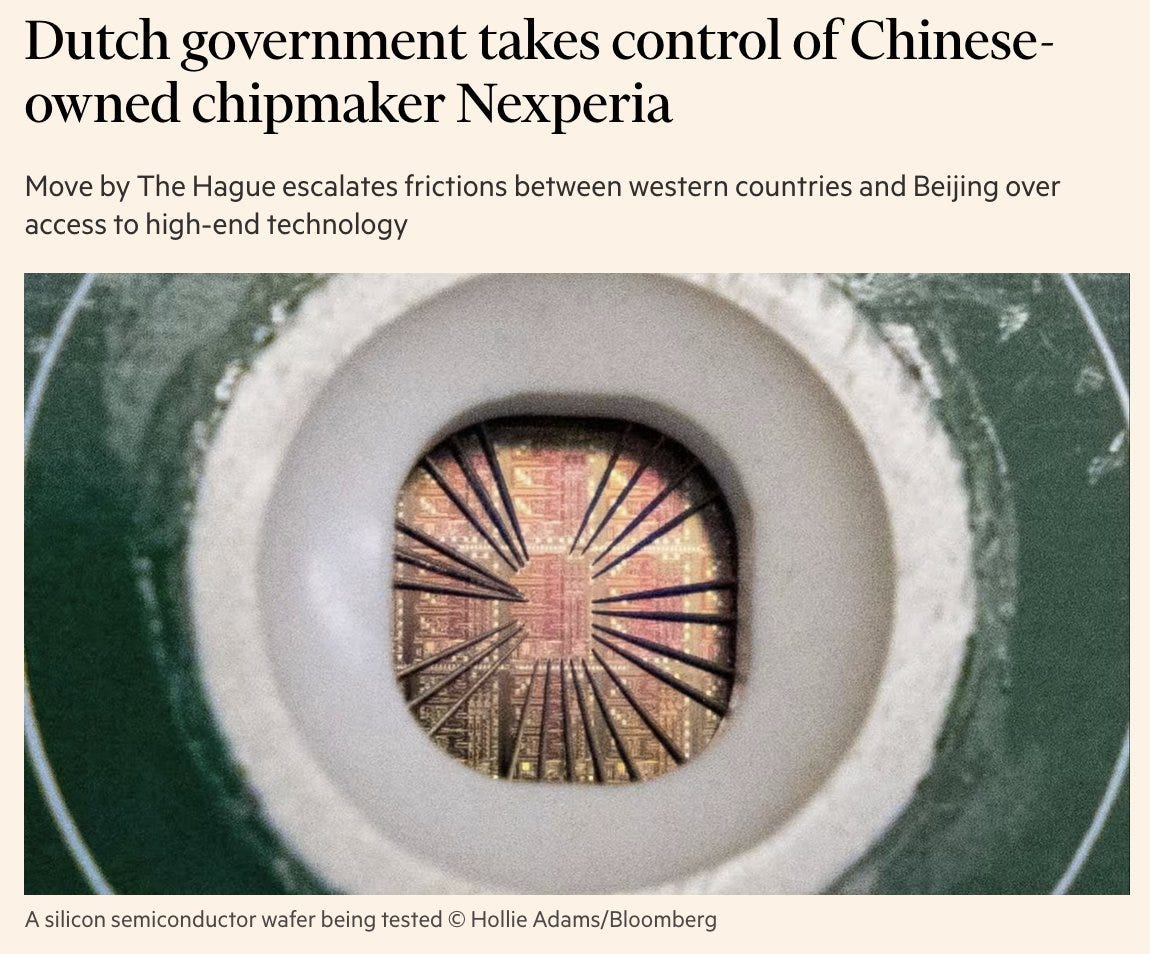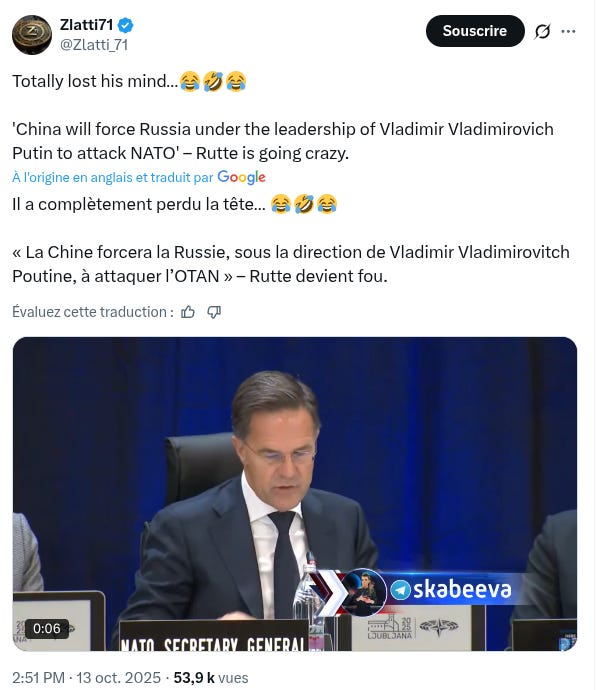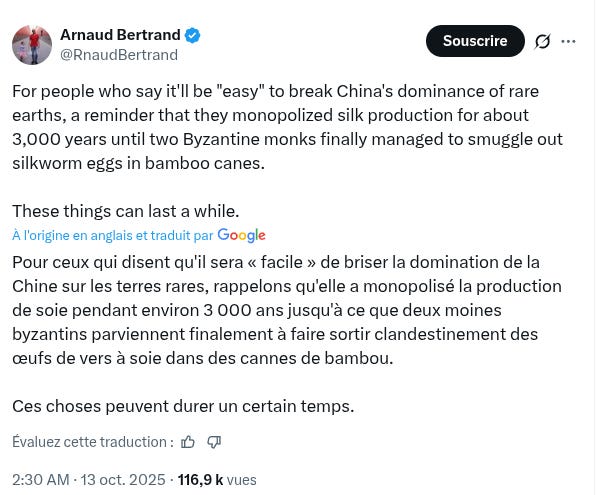[ Flash ] The Stealing Dutchman
The Dutch government’s takeover of Nexperia is nothing short of an act of piracy — one that will carry grave and far-reaching consequences.
The Flying Dutchman — a seafaring legend — tells the tale of a Dutch captain who, defying a storm at the Cape of Good Hope, swore in the name of God never to turn back. For blaspheming, he was condemned to wander the seas forever, never again to set foot on land. A ghost ship.
Now comes version 2.0: The Stealing Dutchman.
The Batavians — as the Dutch once proudly called themselves — have become a people as venal as they are subservient to Washington’s will. The seizure of all international operations of semiconductor manufacturer Nexperia, under a Cold War–era law once aimed at the Warsaw Pact, is sheer madness.
The Chinese purchased Nexperia — formerly Philips’ microelectronics division — back in 2017 for $3.8 billion. China has had access to its expertise and intellectual property for eight years now. The justification offered by the Dutch authorities is nothing more than that — a flimsy excuse.
This isn’t law enforcement — it’s grand larceny dressed up as statecraft. No payment, no compensation: just the blunt seizure of foreign assets. Why pay when you can steal? Classic behavior from a long faded colonial player still twitching with entitlement — the same nation that once loaded the first human cargoes of enslaved Africans onto ships to the New World — and which clearly never forgave being upstaged in Asia by the United States. The Dutch, like the Brits, confuse kowtowing to Uncle Sam with the fantasy that their empire still exists.
Perfect timing, too — the grab happens just as Donald Trump’s “50% rule” takes effect, automatically slapping U.S. companies with majority Chinese ownership onto export-restriction lists. But note the difference in manners: the Americans bully and bargain — they pressure sales under duress — whereas here we have blunt confiscation. No negotiations. No receipts. Just appropriation.
Fine. If confiscation is the new policy, let’s apply the same yardstick universally: how many oil terminals, gas terminals, and refineries does Royal Dutch Shell operate in China through its CSPC joint venture with CNOOC? Ready to seize those next? Don’t pretend this is principle — it’s performative pillage.
How much of Rotterdam’s cargo volume comes from China, exactly? Go on — take a look. Excellent news for other European ports - the French ones, the southern European ones. Why stop there? After all, China already runs the port of Piraeus in Greece — a key gateway to Europe’s trade routes.
And just when you think the hypocrisy has peaked — surprise! There’s always more where that came from.
The Dutch wannabe warlord currently NATO’s Secretary-General has outdone himself: he now claims China will force Russia to attack NATO. Picture it — Fu Manchu puppeteering his mujik proxy, knife clenched between his teeth, his brain wired with microchips salvaged from washing machines. The “Yellow Peril” rides again — that fine hallucination first coined by Napoleon III. What’s next — another looting of Beijing’s Summer Palace?
As the geopolitical ground slips away beneath them, Europe’s leaders are getting increasingly unhinged.
China has never been a conquering empire, but a mercantile one — admittedly, trade tends to flow in one direction. China is the Great Wall, not the Great Army. For three millennia, it held a monopoly on silk — a technological wonder jealously guarded — until a few enterprising Byzantine monks smuggled silkworms westward in their hollow bamboo staffs. As Arnaud Bertrand rightly points out when discussing rare earths: China doesn’t invade, it trades — and it guards its secrets well.
China doesn’t send armies marching across continents. Its reach isn’t military — it’s mercantile. Its focus is the Silk Roads, those vast arteries of trade it now shields by arming reliable partners whith modern missile technologies — Iran, Yemen, and others — with the means to defend themselves against the American empire. It’s a clever move: by empowering others to deter aggression, Beijing secures its trade routes without firing a shot. And those “roads” aren’t just land corridors; they’re sea lanes — the lifelines of global commerce.
In the West, this logic seems incomprehensible — or perhaps deliberately misunderstood. It’s easier to feign confusion, to paint China as a villain, than to admit the empire of trade has outsmarted the empire of force. We’ll return to this — as promised, in the article below.





